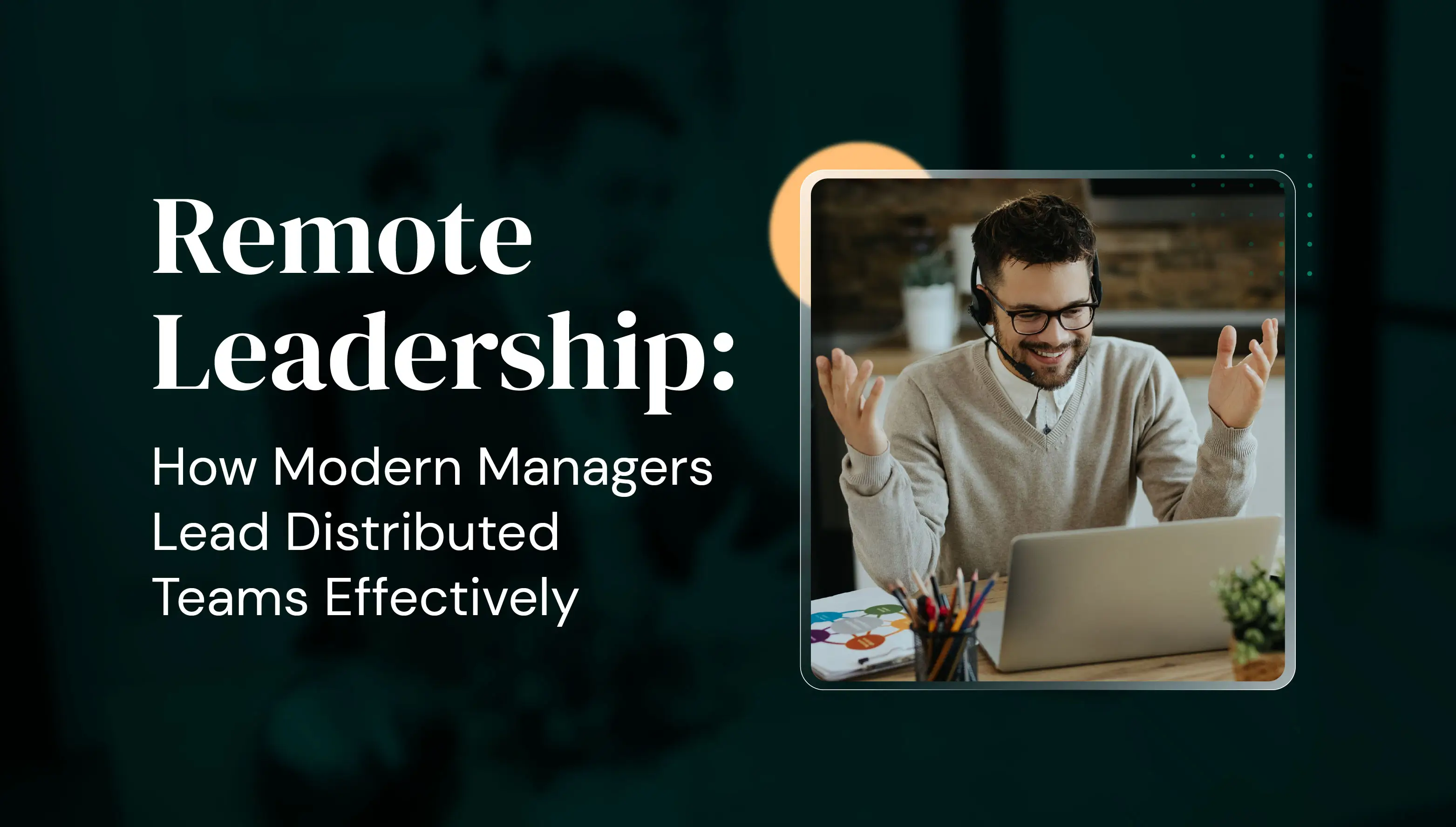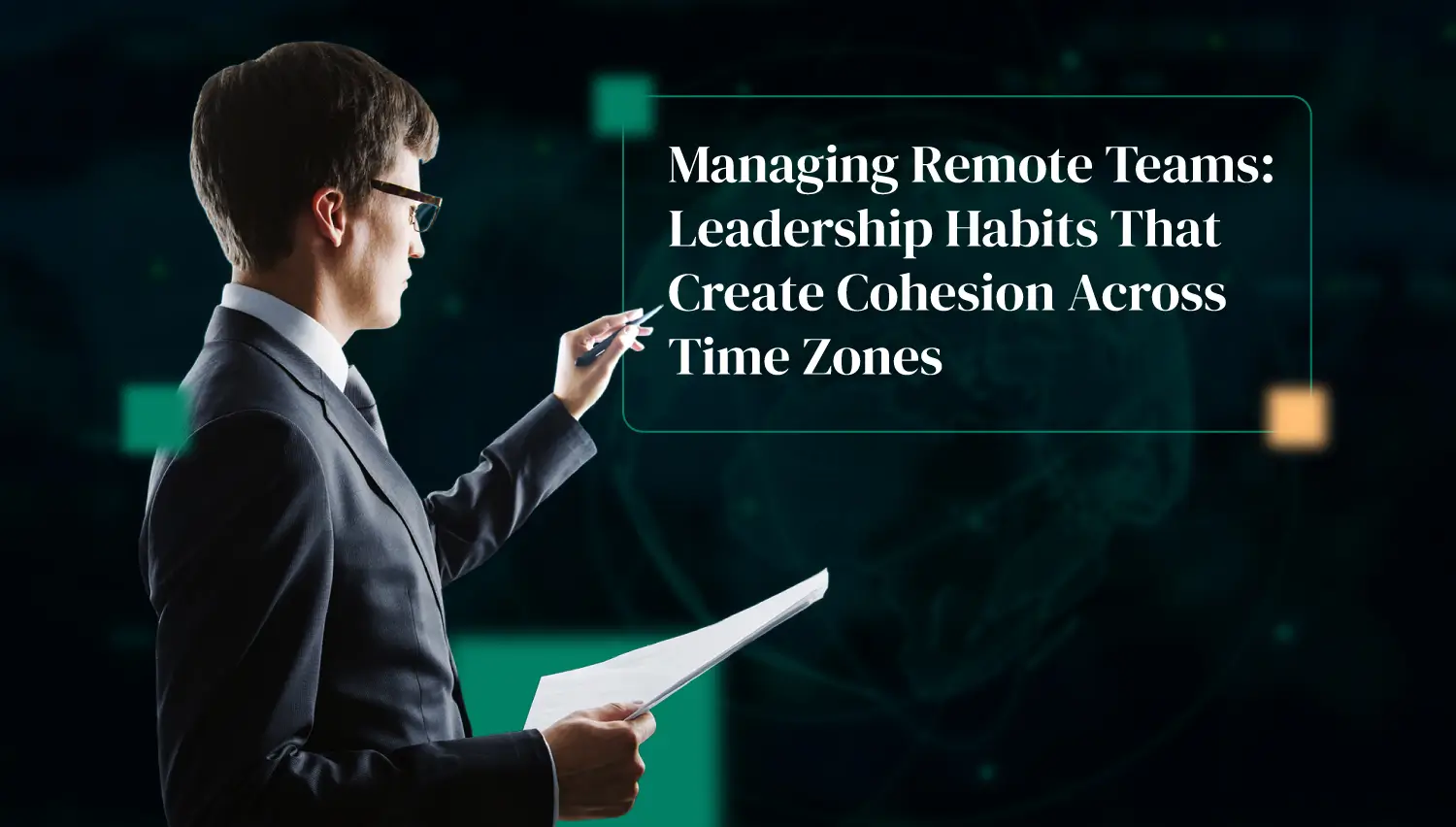I was advising a fast-scaling SaaS startup with strong early traction and a bare-bones team. They were gearing up to launch a new product feature and urgently needed two senior engineers with specific backend experience. Rather than bring in outside help, they decided to post the roles themselves and work their networks.
Within four weeks, they'd reviewed over a hundred resumes, spent dozens of hours in first-round interviews, and still hadn't gotten close to filling the role. One cofounder admitted he was spending more time sorting applications than working on the product.
I stepped in with our team to support the search directly. Within ten days, we'd delivered two pre-vetted candidates who nailed the technical screen and aligned seamlessly with the team's culture. Both were passive candidates we'd sourced through targeted outreach; neither had even seen the job posting.
That wasn't a one-off. I've seen versions of this scenario play out repeatedly: lean teams waiting too long to get help, draining time and momentum on something that could be done better, faster, and smarter. This article is about how to know when it's time to bring in a recruitment agency and how to get it right when you do.
Here's the Short Answer: You're Buying Speed, Precision, and Focus
Working with a recruitment agency means tapping into a built-out network, skipping the grind of sourcing, and getting curated talent who match your business needs. You're not outsourcing judgment; you're streamlining execution.
Recruiters live and breathe the hiring market. They know what talent looks like, how to reach it, and how to qualify it quickly. For companies juggling multiple priorities, that edge is meaningful. It translates into time saved, better interviews, and hires who stay. If your hiring process feels slow, distracting, or full of near-misses, an agency might be the difference between building a team and just burning time.
The Real Cost of Going It Alone
Whether you're a founder juggling five roles or a scaling company with a lean people ops function, hiring often gets squeezed between other priorities. For early-stage teams, it's a matter of bandwidth: founders, heads of product, and even engineers end up screening resumes after hours. In growth-stage and mid-market companies, it's often about overstretched HR teams or a lack of internal sourcing specialization for harder-to-fill roles.
No matter the stage, the outcome is the same: a hiring process that drags, underdelivers, or simply stalls out. Roles stay open too long. Strong candidates slip away. And your team burns hours trying to fix it manually.

Opportunity Cost Compounds Quickly
Every week a role goes unfilled, the ripple effects multiply. A key sales hire might delay revenue. An unstaffed engineering role might bottleneck product timelines. Even support or ops gaps can erode morale and strain your culture.
Worse, the burden often lands on your best people (those already operating at full tilt). That kind of internal drag is costly, especially when compounded across multiple open roles.
Relying on Inbound Slows You Down
Companies that depend on job boards or organic inbound applications often assume it's the most efficient route. But what seems cost-effective upfront often leads to inefficiency later. You spend weeks fielding underqualified applicants, chasing down responses, and restarting the process when promising leads ghost or drop out.
This isn't just a time sink, it's a drag on decision-making and team morale. Managers lose momentum, hiring targets slip, and roles that felt urgent at kickoff become chronic gaps in your org chart.
Recruitment agencies eliminate that waste. They don't wait for talent to come to you – they go find it. That shift alone can save weeks of effort and thousands in hidden opportunity costs.
What You Actually Get When You Work with a Pro
Access to Talent You Can't See
Most top-tier candidates aren't applying to job ads. They're employed, performing well, and not actively looking, but they might be open to the right opportunity. Recruitment agencies specialize in reaching this "hidden" talent market through targeted outreach, industry connections, and personalized engagement.
They also maintain proprietary databases and candidate pipelines developed over years. That means when a role opens up, they're not starting from scratch. They're tapping into warm leads who have already been pre-qualified.
This access can be a game-changer, especially in competitive hiring markets or for niche roles where inbound applications won't cut it.
Faster Hiring Without the Fire Drill
Every week you spend sourcing, reviewing, and coordinating is a week lost to inefficiency. Agencies compress that timeline dramatically. They have systems in place to identify strong candidates quickly, manage communications, and move the process forward while you stay focused on operations.
They're also incentivized to move fast without sacrificing quality. Unlike internal teams juggling competing priorities, a recruiter's only job is to find the right hire, fast. And because they understand market pace, they help you avoid common pitfalls like slow turnarounds or losing candidates to faster-moving competitors.
Filtering for Fit Rather than Just Skill
Hiring isn't just about resumes and checklists. It's about whether a candidate will thrive in your culture, work style, and team dynamics. Recruitment agencies assess both hard and soft skills, technical capabilities, communication style, adaptability, and long-term potential.
Many agencies use behavioral interviewing, portfolio reviews, and role-specific test projects as part of their screening process. They can also gather informal feedback from references and past clients to paint a fuller picture. That way, clients can get candidates who align not just with the job description but with the day-to-day realities of their business.
Getting the Most Out of the Partnership
Start by evaluating agencies the way you'd evaluate any strategic partner.
What industries do they specialize in? What roles do they fill most frequently? Ask for examples of recent placements and request client references.
Avoid firms that promise the world without asking many questions about your company or role. A good agency will want to understand your values, growth goals, and hiring pain points. That discovery work is critical to producing great results.
Set Expectations and Stay in Sync
Even the best agencies need guidance. Be clear about your hiring timeline, must-have qualities, budget constraints, and internal process. Outline who will be giving feedback, how quickly, and what kind of updates you expect.
Set up a weekly check-in, especially in the first month. Momentum is everything in recruitment. The more responsive and aligned both sides are, the better the candidate experience and outcome.
Use the Agency's Market Knowledge to Your Advantage
Recruiters aren't just resume-sifters; they're plugged into real-time market trends. They know what similar companies are paying, how candidate expectations are shifting, and what roles are suddenly harder (or easier) to fill.
Take advantage of that. Ask for market feedback on your job descriptions, comp bands, and interview process. A good agency will tell you if your offer is off pace or if your requirements are unrealistic given current availability. Use them as a sounding board, not just a vendor. That insight can help you tighten your hiring process, stand out to candidates, and make better, faster decisions.

What Can Go Wrong and How to Prevent It
Fee Confusion and Misaligned Incentives
Not all agencies charge the same way (or for the same outcomes). Contingency-based agencies get paid only when they place a candidate, while retained firms may charge upfront. Each model has its merits, but either way, the incentive structure needs to align with your goals.
Ensure you understand what's included in the fee, asking questions like:
- Is there a replacement guarantee?
- Are there refunds if a hire doesn't work out?
- Is exclusivity required?
Clarity upfront prevents frustration down the line and ensures you're working with a partner who's invested in your long-term success.
Quality over Quantity
An agency that sends 20 resumes in two days isn't necessarily doing great work. Volume is not value. Instead, look for firms that send fewer, higher-quality candidates and are willing to explain why each one is a good fit.
If you start getting resumes that look copy-pasted or barely relevant, it's time to reset expectations. The best agencies act as a filter, not a funnel. They should be saving you time, not shifting the burden of screening back onto your team.
Candidate Experience Can't Be an Afterthought
When a recruitment agency doesn't reflect your brand accurately, candidates notice, and it can cost you great hires. Poorly written outreach, tone-deaf messaging, or misrepresented role details can create friction early in the funnel and erode trust.
From the candidate's perspective, your recruiter is your company. If that recruiter undersells the opportunity or miscommunicates your culture, you're starting the relationship at a disadvantage.
Prevent this by aligning early. Share your company's tone, pitch, and core messaging. Provide past outreach samples that resonated or even a brief value proposition to anchor conversations. A good agency will welcome the direction and apply it consistently, ensuring your brand shows up the way it should at every touchpoint.
Recruitment Isn't the Admin Task You Think It Is
It's easy to treat hiring like an operational chore, a to-do list item you tackle between meetings. But the reality is, your next hire will either push the business forward or quietly stall your momentum.
Recruitment is strategic. Every great hire gives your team more capacity, better ideas, and faster execution. Every missed or delayed hire creates drag (missed goals, overloaded teams, and lost opportunities).
That's why great companies don't wing it. They use specialists. Just like you'd bring in legal counsel for a major contract or a finance expert during a raise, you bring in recruitment professionals when the stakes are high and the margin for error is thin.
And in today's competitive hiring landscape, that margin has never been thinner. You don't need more resumes. You need the right candidates, ready to contribute, aligned with your mission.
That's what the right agency delivers. It's not outsourcing; it's leveling up.
Ready to Hire Smarter, Not Harder?
The best recruitment partners become a force multiplier: they bring you talent you wouldn't have reached, they compress your timeline without compromising quality, and they act as advisors who've seen hundreds of hiring cycles across your industry. You get the benefit of their pattern recognition, their network, and their process, all calibrated to your needs.
If you've been doing it all yourself and it's no longer working, that's not failure. It's just a sign that you've hit the threshold where leverage matters more than hustle.
So, if you're ready to level up, fill out the contact form below to get in touch with the Somewhere team. Let's talk about what's not working and how to fix it fast, with the right people in the right seats.






.webp)





.webp)

